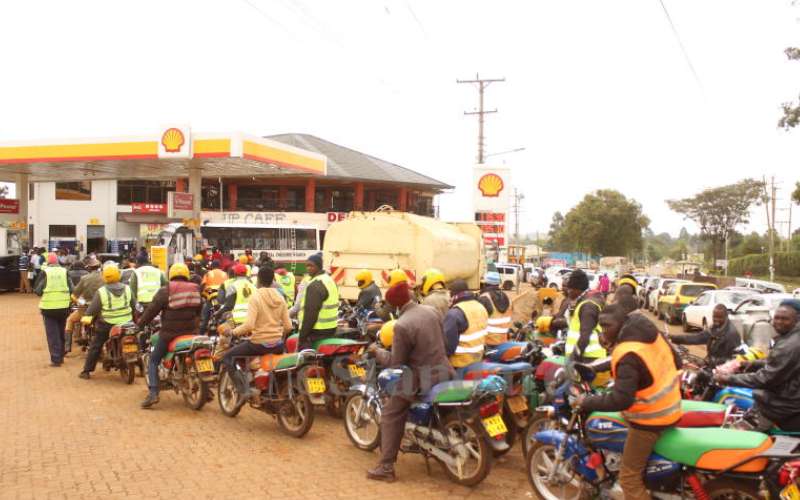×
The Standard e-Paper
Kenya’s Boldest Voice

Boda boda operators queuing at a fuel station in Kabsabet, Nandi County, March 30, 2022. [Christopher Kipsang, Standard]
Kenyans should brace for tougher times ahead, including paying higher fares, if the fuel crisis triggered by a squabble between oil marketers and the government persists.